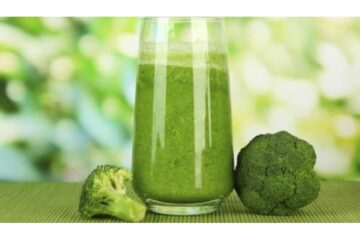All through the pandemic, a few expert and university sports associations dropped significant occasions and seasons, partially to slow the spread of COVID-19, yet in addition because of disturbing reports of competitors fostering a condition called myocarditis – – aggravation of the heart muscle – – following a COVID-19 contamination.
Specialists were performing “exceptionally thorough testing looking for myocarditis” right off the bat in the pandemic, Dr. Tamanna Singh, co-overseer of the Cleveland Clinic Sports Cardiology Center, who was not engaged with the new direction, told News, taking note of that, at that point, they were stressed that the rate of myocarditis “would have been a lot higher than it really was.”
Following two years of examination, the American College of Cardiology delivered direction Tuesday that expresses the occurrence of heart irritation among competitors after COVID-19 is lower than initially suspected, however they actually propose a bit by bit intend to help cutthroat competitors and end of the week heroes the same that will assist them with securely getting back to their exercises.
“While the information on cardiomyopathy is fundamental and inadequate, the questionable gamble was unsatisfactory right now,” Big Ten magistrate Kevin Warren wrote in an August 2020 open letter on the choice to drop the school gathering’s 2020-2021 fall sports season.
Back in September 2020, when a lot was as yet unclear about COVID-19, scientists at Ohio State University inspected 26 competitors following a gentle COVID-19 contamination that didn’t need hospitalization. Myocarditis was seen as in 15% of the competitors, while 30% had fostered a scar on their heart, raising a feeling of vulnerability encompassing the wellbeing of competitors getting back to play following a disease.
“For competitors recuperating from COVID-19 with continuous cardiopulmonary side effects … further assessment ought to be performed prior to continuing activity,” the ACC Expert Consensus Decision Pathway, which was distributed in the Journal of the American College of Cardiology, states. “For all other people who are asymptomatic or with side effects less reminiscent of a cardiopulmonary etiology … extra heart testing isn’t suggested.”
Commonplace rates for myocarditis association in competitors is “exceptionally low, with rates regularly being around 0.6 to 0.7%,” Singh said.
“Myocarditis is an exceptionally interesting yet genuine intricacy of COVID,” Bhave said. “Patients with COVID myocarditis definitely should be overseen at a significant level place [with the legitimate equipment], on the grounds that these patients can go south quick.”
While’s how specialists might interpret COVID-19 advances, obviously numerous patients keep on having side effects, self-evident or inconspicuous, following contamination. And keeping in mind that few out of every odd competitor with COVID-19 will encounter myocarditis, it’s sufficiently perilous to make specialists pay heed.
Direction for competitors
Competitors experiencing industrious chest agony, palpitations or passing out require further cardiovascular testing. On the off chance that the discoveries are disturbing for myocarditis, the ACC prescribes restraint from practice for three to a half year.
The new ACC direction recommends that it is alright for competitors without any side effects from COVID-19 to get back to practice three days following self-seclusion. For those with gentle side effects not including the heart or lungs, it is protected to get back to practice once side effects resolve.
“You’re basically seeing somebody who has had 10 years and a half, perhaps twenty years, of unhindered games investment and limitless activity limit who currently has extreme impediments,” Singh said. “They’re losing their actual association with self, yet in addition their social association with their local area, which can actually intellectually decimate.”
Assuming a competitor has determined side effects, Bhave said, “One of the proposals that we’re making in the record is that individuals participate in prostrate activity, so instead of attempting to walk, accomplishing something where they’re really plunking down, so orthostatic narrow mindedness [the failure to endure fast movements] is anything but no joking matter.”
“It’s significant as doctors to say, ‘Hello, I’m here with you, and I realize you’re as yet not back to where you were. I share your dissatisfaction and I won’t leave you,'” Bhave said. “We actually have a long way to go, and I imagine that is a message that is exceptionally useful to patients who are feeling disappointed.”
Singh and Bhave both said that re-presentation of activity following contamination should be steady, beginning with limited quantities and expanding recurrence, length and power as endured.


